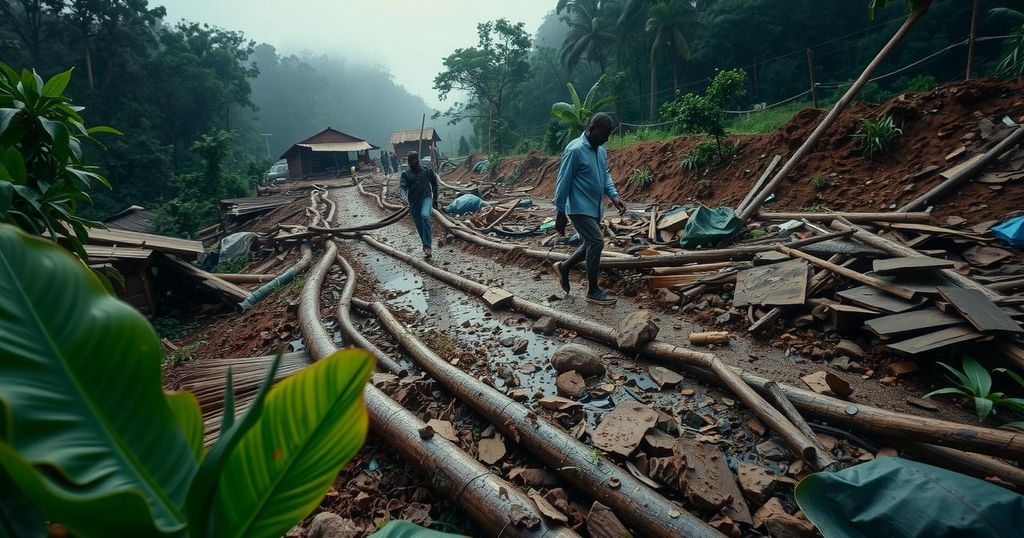A devastating mudslide in eastern Uganda has led to 20 confirmed fatalities, with more than 100 individuals still missing. Officials report that torrential rains caused the disaster, which officially buried over 40 homes. The rescue operations are ongoing, with several survivors currently in medical care. The incident reflects the rising occurrence of landslides in the region during heavy rainfall seasons.
The tragic aftermath of a catastrophic mudslide in eastern Uganda has resulted in a confirmed death toll of 20, as reported by local authorities. On Wednesday night, torrential rains triggered the disaster, affecting multiple villages in the Bulambuli district. Rogers Taitika, a police spokesperson for the Elgon region, stated that recovery teams have retrieved the bodies from the scene, while over 100 individuals remain unaccounted for. Rescue efforts are ongoing, with 21 survivors currently receiving medical attention. The incident highlights the increasing frequency of landslides in Uganda, particularly during periods of heavy rainfall, and calls attention to the urgent need for preventive measures.
Landslides are a recurrent hazard in Uganda, particularly during rainy seasons. This recent tragedy is part of a worrying trend where severe weather leads to significant loss of life and property damage. Previous incidents, such as a landslide in August that claimed over 30 lives at a garbage dump in central Uganda, underscore the grave risks posed to vulnerable communities. As climate change exacerbates weather patterns, effective governmental and community response strategies are essential to mitigate the impacts of such disasters.
In summary, the mudslide in Bulambuli district has resulted in significant loss of life and highlights the ongoing risks associated with severe weather in Uganda. With many individuals still missing, rescue operations are a priority, emphasizing the need for enhanced disaster preparedness and community awareness to safeguard lives amid increasing environmental threats. Continuing rainfall and the history of such disasters underscore an urgent call for improved response strategies and infrastructure to protect at-risk populations.
Original Source: www.socialnews.xyz






